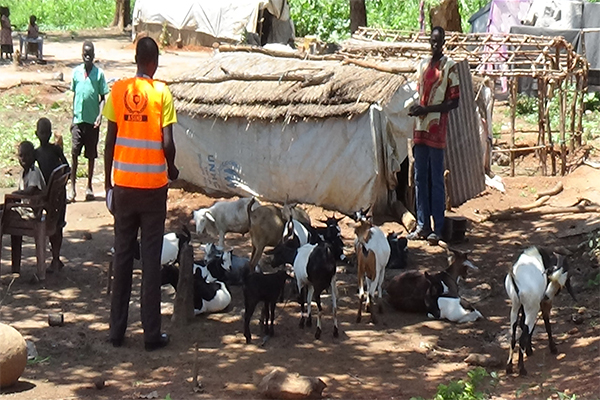South Sudan inherited a weak health system at independence in 2011, following systemic underfunding and neglect. The health system further deteriorated to near collapse following the disruptions caused during the 2013 and 2016 crises and subsequent transitional government arrangements. Given the unprecedented humanitarian crisis arising from the disruptions, support to the health sector has mainly focussed on delivering basic essential lifesaving health services and humanitarian response. Only about half of all health facilities are supported, and the support through the community based Boma Health Initiative (BHI) only covers approximately 40 per cent of the population. In other words, about half of the population is grossly underserved in health services.
South Sudan has a low routine EPI coverage for the last couple of years, which can be attributed to the scarcity of skilled human resources at the grass root level for vaccination operations, high attrition rates for the few available skilled human resource, access issues due to insecurity coupled with recurrent flooding for the last three years.
The prevalence of wasting among young children in South Sudan (16.2 per cent) falls above the World Health Organization (WHO) emergency thresholds (15 per cent). The Greater Upper Nile states of Jonglei, Upper Nile and Unity are the most affected, with 24.4 per cent, 22.6 per cent and 15.5 per cent prevalence of wasting among young children, respectively. Wasting among young children remains a public health issue, taking a heavy toll on survival and development of children. “Flooding and hunger and drought will increase hunger even further. But it is also very likely to increase the risk of mosquito-borne diseases, especially malaria and dengue and water-borne diseases,” indicates the report, adding that malaria is one of the five main causes of death in South Sudan.
To be able to deliver on our mandate of ensuring the health and wellbeing of our people among refugees, returnees, IDPS and host communities, ASIMO implements health support in South Sudan through community health facilities and mobile medical units (MMUs), which provide a range of maternal, mental, and primary health care services. We shall continue to provide life-saving maternal and new-born health care services to reduce the prevalence of maternal and infant deaths. ASIMO also supports integrated community case management services in South Sudan, which deliver life-saving health interventions for common childhood illnesses, particularly in areas with limited access to facility-based services. We shall continue to assist in training local health care workers in infection prevention and control methods, provide support for vaccination campaigns, and participate in strengthening community health coordination. We shall continue to implement health interventions with integrated nutrition and WASH services wherever possible to promote a comprehensive system of clinical services.

